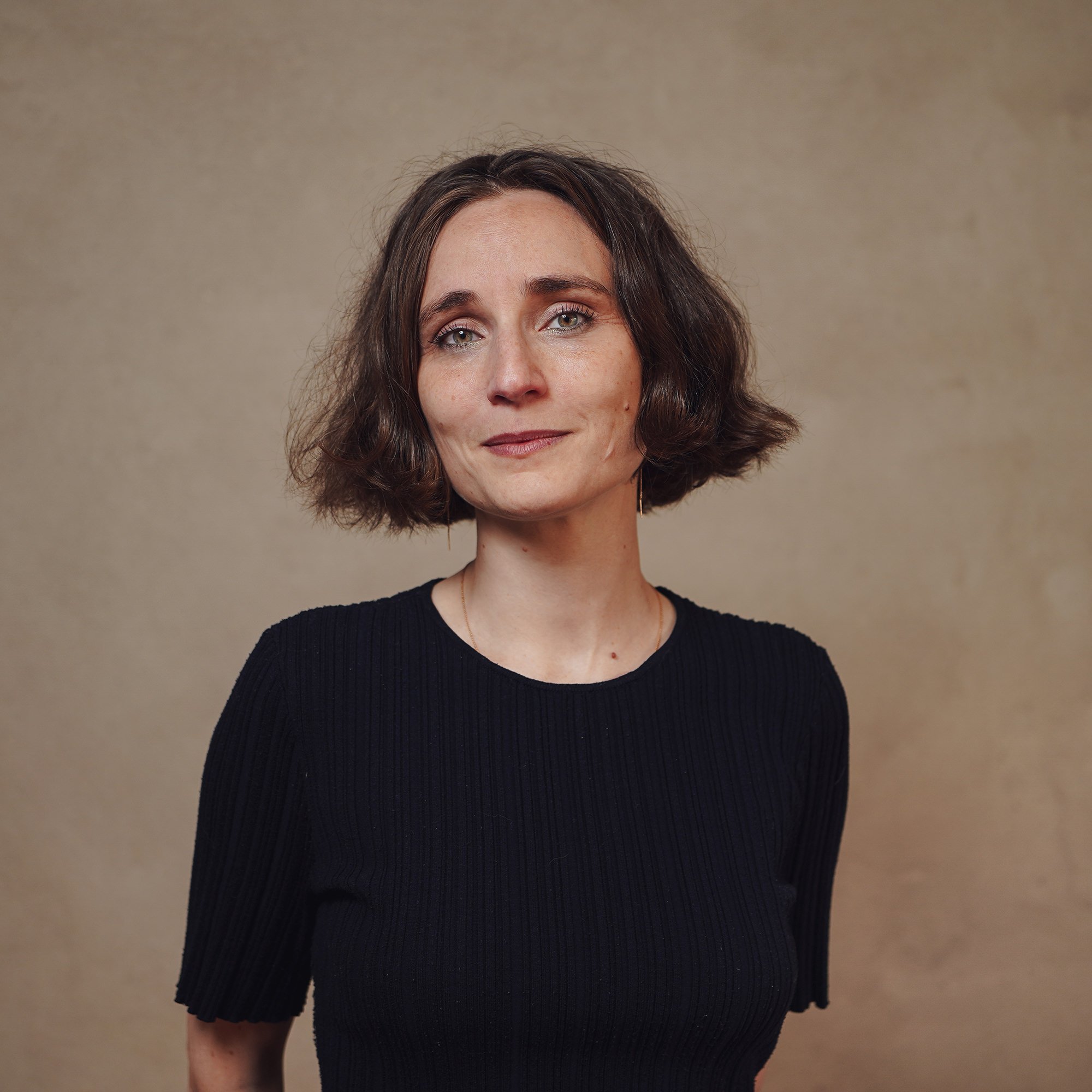Becoming Belgian
For Afghan immigrants in Belgium, securing the right to stay involves proving they have become too “Westernized” to return.
JULY 23, 2024
On a recent cloudy afternoon in the Belgian City of Ghent, Safai, an 18-year-old Afghan immigrant who holds a white belt in taekwondo, showed me a video titled “The Best Taekwondo Knockouts.” The video, in which a series of men and women vie to deliver an unexpected coup de grâce, has served as inspiration for dealing with his own challenges, he said.
His asylum application was denied in November, almost two years after he submitted it. His lawyer lodged an appeal. “It’s unfair,” he said, detailing his fears of life in Afghanistan. “My father worked for the Afghan army. He was killed by the Taliban. If I go back to Afghanistan, the Taliban will murder me as well. … I fear that tomorrow, or the day after tomorrow, my younger brother might be [killed] too.”
At his next hearing, which will likely be held over the summer, Safai’s lawyer advised him to try a different approach: proving he’s become so Westernized that he can’t return to Afghanistan. To build his case, his lawyer has submitted photos of him dancing at a local festival, hanging out at parties with girls from his Dutch language class and preparing food at gatherings with both men and women — things that would expose him to persecution by the Taliban in his native Kabul.
A growing number of lawyers in Belgium have turned to this strategy in recent years.
After the Taliban staged a coup and took over Afghanistan in August 2021, Belgian authorities, as well as their counterparts in other EU countries, declared that the armed conflict there had ended. In an emailed statement to The Dial, Belgium’s Office of the Commissioner General for Refugees and Stateless Persons wrote that it believes there is “no longer the risk of becoming the victim of random violence” in Afghanistan.
Even as it has become harder to get protection, for many Afghans, going back is not a viable option.
This essentially removes Belgium’s obligation to grant asylum based on subsidiary protection — when a person does not qualify as a refugee but there are sufficient grounds to believe they would suffer serious harm if they returned to their country of origin.
Belgium still grants refugee status, however, to people who suffer targeted violence or persecution, which generally applies to “women, certain ethnic and religious minorities, people who used to be a part of the Afghan army or police force, certain employees associated with the prior government, activists, journalists, etc.,” the office stated.
The change in policy “allows the asylum authorities to be more selective in who they protect,” said Thomas Willekens, a policy officer at the advocacy group Vluchtelingenwerk Vlaanderen, or Refugee Council Flanders.
No country wanted to be the only one in the EU to not restrict entry for Afghans, he added, referring to a growing reluctance to admit more refugees amid a political shift to the right across the continent.
Even as it has become harder to get protection, for many Afghans, going back is not a viable option. Since the coup, groups such as the International Organization for Migration, which helps EU countries resettle immigrants in their countries of origin, have not been active in Afghanistan. “Even if the overall security situation has improved, there is no safe environment for return,” an IOM spokesperson wrote in an email, calling the situation in Afghanistan, “the biggest humanitarian crisis ever.”
For many Afghans in Belgium, that means a life in limbo. Because of the high number of asylum applications the country receives, cases like Safai’s can take several years to process. In the meantime, they learn Dutch and gather evidence that they are integrating into local society — and, crucially, becoming so “Western” that it would make them targets of violence if they were to return to Afghanistan.
The situation is “absurd,” said Hind Riad, a lawyer based in Belgium who specializes in Afghan asylum cases. “A legal question — does someone still have a future [in Afghanistan]? — has become a cynical game, a lottery.”
✺
In Ghent, Safai, whose name has been changed to protect his anonymity, shares a room with other Afghans his age in a shelter on the Reno, a boat that used to serve as a prison.
He came to Belgium from Kabul, where his father drove a gasoline truck and was a driver for an army commander; his grandfather worked for the government. The day before the Taliban reached Kabul, Safai and his father fled to Iran. When Safai’s father was denied entry at the Turkish border, Safai continued to Europe on his own, according to excerpts from Safai’s interrogation report and the petition his lawyer, Kati Verstrepen, submitted to the Council for Alien Law Litigation (CALL), the appeal court that will review his case.
Safai hopes to finish his language classes, get a job working at a factory or selling cars, and buy a house one day, he told me as he sipped from a glass of orange juice at a local café. Alcohol remains off-limits.
Griet Braeye, his guardian and social worker, admitted that she has thought about prodding him to start drinking beer to help him appear more Westernized. “I find that really hard,” she said. “Do I tell him to eat pork next?” When it comes to winning his case, “the more you relinquish your own norms and values, the better,” she explained. “I find that very painful. This is really an old white men’s view on Westernization.”
Applicants need to check boxes to try to appeal to whatever image of “Belgian-ness” the judge might consider suitable, Riad explained. It’s an image that usually involves drinking alcohol, having extramarital sex and mingling with others at bars.
Riad said she peppers her clients with questions to get a sense of their chances and how to build the case: Do you consider yourself a Muslim? Do you drink alcohol? Do you have a girlfriend in Belgium? Do you go out?
“On and on it goes,” she said. But again, that’s not what ‘Westernization’ should be about. It should be about whether someone still has a future in Afghanistan. … And of course, if the judges were honest, they’d know that’s not the case.”
About 90 percent of Afghan immigrants who return to the country experience violence, because of the Taliban’s suspicion that they have become Westernized and engaged in “immoral” behavior, the German researcher Friederike Stahlmann wrote in a report cited by the European Council on Refugees and Exiles.
✺
Government statistics show that between August 2021, when the Taliban took control of Afghanistan, and December 2023, Belgium has denied more than 7,900 asylum applications from Afghans.
According to the federal agency for the reception of asylum-seekers, between January 2022 and April 2024, at least 20 Afghans have returned to their country with help from the Belgian government in the form of a plane ticket to Kabul and a 1,350-euro stipend.
“Going back for those who can’t stay in our country, has proved to be possible,” wrote a spokesperson for Nicole de Moor, Belgium’s state secretary for asylum and migration, in an email to The Dial.
But most people whose applications were denied have been left to their own devices. Some try their luck in other European countries or take up work wherever they can — on construction sites, or in drug and prostitution gangs. Others, like Safai, are studying and learning the language as they await the outcome of their appeals.
“It takes political courage to say: We’re going to do something about [the situation],” said Willekens, from Refugee Council Flanders. “But so far, that courage has remained elusive.”
In August 2023, de Moor announced that single men would no longer receive shelter, in an effort to make room for families — a decision that provoked scathing critiques from human rights defenders, including then-EU Commissioner for Human Rights Dunja Mijatović.
Since then, the Belgian government has been condemned for not providing shelter to asylum-seekers in more than 8,000 cases, totaling 20 million euros in fines. De Moor has refused to pay these fines, a decision that resulted in bailiffs confiscating her cabinet’s coffee machine and freezer in January.
De Moor pointed out that a lot of extra capacity has been created in the country’s shelter system in recent years, but she acknowledged that it remains inadequate. “Those who have a right to shelter, need to get it,” she wrote in a statement to The Dial. “Unfortunately, we can’t manage that today because of the high influx of people.” She added, “Rather than paying fines that don’t bring us closer to a solution, I’ve chosen to work on the underlying causes.”
To better manage asylum applications, in February the government launched a “fast-tracked procedure for people of nationalities who have a very slim chance on being granted asylum,” she said. (Afghans are not among them.) The state secretary also pointed to the EU’s new migration pact, agreed earlier this year, as a mechanism that will ensure people “with almost no chances of [being granted] asylum get an answer at the European borders.”
In May, Belgium’s Federal Parliament approved a new law that reserves shelter spaces for those with a pending asylum procedure — “something that’s very logical but wasn’t the case so far,” de Moor wrote.
The United Nations has urged caution about asylum claims, calling on EU countries to suspend decision-making on cases involving Afghan immigrants until the situation in Afghanistan has stabilized and reliable information about the security and human rights situation becomes available. It recommends that EU countries grant eligible candidates refugee status rather than other forms of international protection that offer fewer rights and must be renewed at regular intervals.
In a report published in May, the EU Asylum Agency noted that the risk profiles of individuals perceived as Westernized “may largely overlap” with those of people thought to have “transgressed religious, moral, and/or societal norms.” The latter, it argued, would be “highly likely to qualify for refugee status.”
When I first met Mohammadullah at his apartment in Antwerp earlier this year, he apologized for his empty fridge. “It’s Ramadan,” the 18-year-old said. “I’m fasting.”
Becoming “Westernized,” Mohammadullah told me, is not about religion: It’s about going to school, studying Dutch, riding a bike.
Mohammadullah, who asked to be referred to by only his first name, said he would not consider giving up his faith and Muslim identity to obtain asylum. That has not been required of him so far, although performing Christian rituals — like lighting a candle when someone has died — is considered good behavior and evidence of integration that can be included in an asylum application, Braeye, the social worker, told me.
Becoming “Westernized,” Mohammadullah told me, is not about religion: It’s about going to school, studying Dutch, riding a bike.
Mohammadullah arrived in Belgium in May 2021, several months before the Taliban’s coup. His older brother Mohibullah had left home — a village in the province of Kunar so small that it’s undetectable on Google Maps — six years earlier and been granted subsidiary protection in Belgium. Eager to join him, Mohammadullah took a bus to Kabul, then to Pakistan and on to Iran. He traveled on foot over the mountains to Turkey, then by car to a shelter in Bulgaria. In Sofia, he was put on a plane as an unaccompanied minor and flown to Brussels to join his brother.
His first asylum application was denied in December 2022, more than a year after it was submitted. His lawyer’s next attempt rested on arguing that Mohammadullah’s new work and activities in Antwerp made him too Westernized to return to Afghanistan.
He had started to train as a caregiver at a retirement home, where he regularly touches women’s bodies, something the Taliban considers to be haram. At the suggestion of his social worker, he also joined a sports club. He chose a gymnastics group, for which he wore tight-fitting outfits and performed routines to Western pop music. In a video he played for me, he dances an elaborate routine called “Horse Tamers” while girls form a circle around him and wave green whip-like ribbons to the rhythm of Sia’s “Unstoppable.”
Other Afghans in Mohammadullah’s community mocked his new hobby, saying they thought it was “un-male” and even “sinful,” Braeye wrote in her letter to CALL, the appeal court. Mohammadullah stuck to his hobby regardless, an attitude the judge appreciated. His appeal was approved in May 2023, two years after he initially filed his case.
Approval rates of cases like Mohammadullah’s have increased from 1.03 percent in 2022 to 7.24 percent in 2023, according to a CALL yearly report.
It’s “impossible” to track how many cases have been approved because of lawyers successfully proving the “Westernization” of their clients,” said Frédéric Tamborijn, a spokesperson for CALL, who added that the higher approval rate of Afghan asylum cases also corresponded to a steep rise in cases after Belgium lifted a moratorium on handling them in 2021.
Ruben Wissing, a researcher at Ghent University’s Migration Law Research Group, offered an additional explanation: “It is clear that a few judges inside the court don’t agree with the views of the asylum authorities. … And there are some excellent legal arguments for that: The lack of information from inside Afghanistan means you need to give credible applicants the benefit of the doubt. And that means granting them protection rather than withholding it on this scale.”
He said he has observed a growing number of cases where lawyers use the argument that their clients have become too “Westernized” to return, but warned that the strategy has pitfalls: “You risk confirming to those young men a very narrow image of what the morals are in the West — a culture that centers pork meat, alcohol … and extramarital sex.”
✺
The next time I visited Mohammadullah, on a rainy spring afternoon, he offered me green tea and a plate of dried figs and showed me a video of a double backflip he once performed at his gymnastics club. He lands perfectly on his feet.
He is proud of that skill, he said, and of his training as a caregiver, his new life in Antwerp and his positive asylum decision. He didn’t mind proving to the judges how “Westernized” he had become, he said: “I had to do it to stay here. It doesn’t matter whether it was strange or not. … There was no other way for me.”
Still, he quit the gymnastics team during Ramadan this year. “I lacked the energy,” he said. He wants to finish his studies but is not sure he will continue being a caregiver. He had imagined that “taking care of the elderly,” a phrase he first encountered in Dutch class, meant helping them do things like cross the street, not washing them — even if the “intense shame” he initially felt during the task wore off over time.
In the next few months, Mohammadullah’s mother will leave Afghanistan to join him and his brother in Antwerp, he tells me. They hope to be able to rent a house after she arrives, rather than the small one-bedroom apartment in a busy neighborhood where they now live.
In Ghent, Safai, too, has quit his sports team. Fighting, running and working out used to make him feel good, he said. But after his father was killed by the Taliban in April, keeping up with regular training became too stressful. And he was angry. Angry at the Belgian government for taking so long with his application, and for leaving him in limbo as he waits to hear when the appeal court will hear his case. Angry with himself because he failed his first language test, an exam he will have to take over if his asylum application is approved.
He was wearing a black crown-shaped ring when I saw him. With his black-and-white sneakers and black hoodie, he looked like the taekwondo fighters in the videos we watched together. When I asked him what the ring means to him, he smiled. Victory, he has learned, is fleeting. No matter how strong you are, he says, there are some things you cannot bend your way. But nor do the judges reviewing his case, or even the Taliban, have the final say. “Nobody is a king,” he said.



